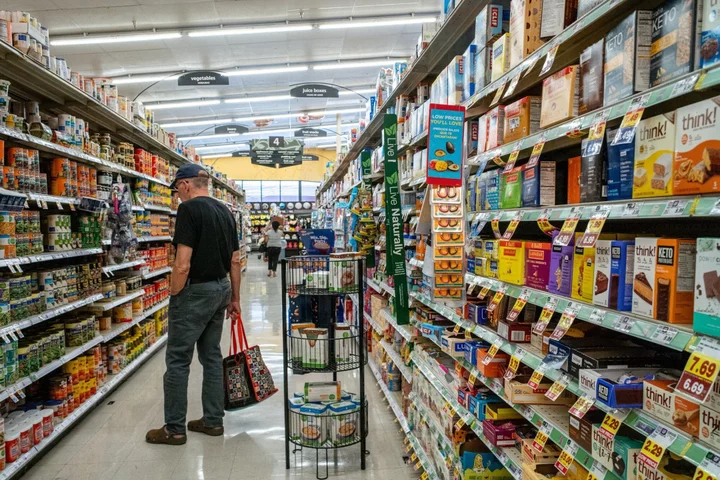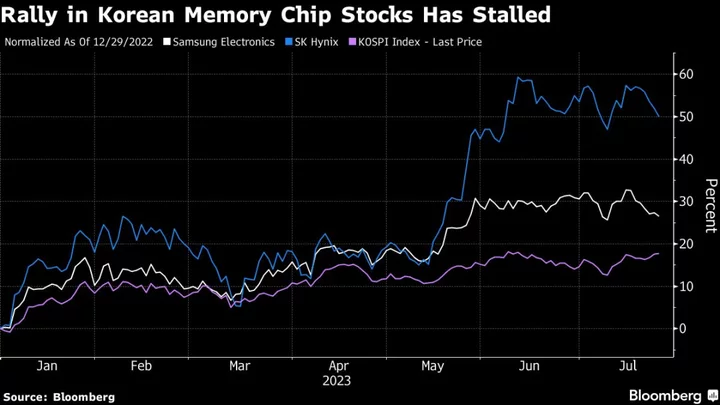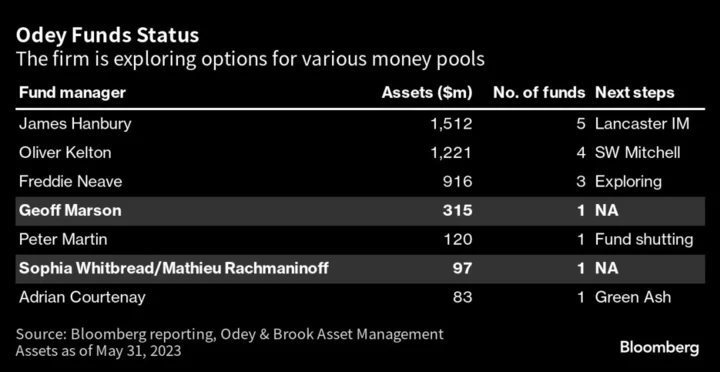Kroger Co. dropped as revenue growth slowed, signaling the end of a long sales boom spurred by the pandemic.
Shoppers are increasingly pinching pennies as they contend with inflation and economic uncertainty, Chief Executive Officer Rodney McMullen told analysts Thursday after Kroger reported earnings. While food-price increases are slowing, budget-conscious consumers are pulling back and the company is dangling more promotions, adding to the headwinds on sales and profit.
The slowdown contrasts with the windfall Kroger reaped during the pandemic as shoppers rediscovered home cooking and fueled a surge in grocery demand. Buoyed by those gains, the Cincinnati-based company agreed last year to buy Albertsons Cos. in a deal valued at $24.6 billion. The transaction is currently undergoing a comprehensive antitrust review.
“The near-term outlook is now trickier,” Rupesh Parikh, an analyst at Oppenheimer & Co., said in a note to clients, citing increased promotions and uncertainty surrounding the proposed merger.
Kroger fell 4.1% at 12:27 p.m. in New York, paring a loss that earlier stood as the biggest intraday drop in eight months. The decline pared the stock’s year-to-date gain to less than 2%, versus the S&P 500 Index’s 15% advance over the same period.
“There’s nothing wrong with the print, but investors have grown used to seeing more upside out of this company,” Adam Crisafulli, an analyst at Vital Knowledge, said in a note to clients.
Income Split
McMullen flagged a widening split between lower-income customers, who are spending less and buying smaller pack sizes, and middle-income and wealthier shoppers, who he said are turning to Kroger in search of lower prices.
The grocer maintained its annual profit outlook, but Chief Financial Officer Gary Millerchip said earnings, excluding some items, would be at the low end of the forecast range in the second quarter. Comparable sales are still expected to rise 1% to 2% this year, but that metric too will be at the low end during the next three quarters, he said.
During the fiscal first quarter, which ended May 20, adjusted earnings rose to $1.51 a share, exceeding the $1.45 average of analyst estimates compiled by Bloomberg. That was the narrowest beat since the quarter before the pandemic.
Kroger said increased promotions during the quarter pressured profit. It also echoed retailers such as Target Corp. and Dollar Tree Inc. in complaining about worsening “shrink” — a retail-industry term that includes inventory losses from theft. The problem is worst in the part of the store where packaged goods are sold, not in the produce section, said Millerchip.
First-quarter sales climbed 1.3% to $45.2 billion, just shy of the $45.3 billion predicted by analysts. Comparable sales excluding fuel climbed 3.5%, slightly ahead of analyst estimates. The yardstick would have increased 5% if not for a drop in pharmacy sales from the termination of Kroger’s agreement with Cigna Corp.’s Express Scripts at the end of last year.
(Updates shares in fifth paragraph)









